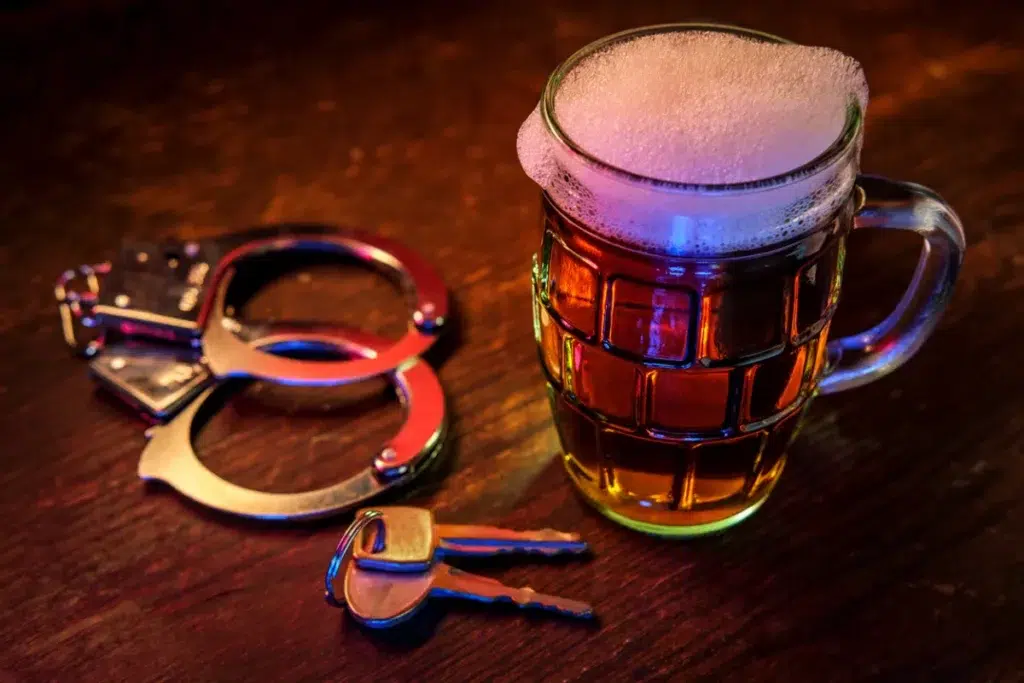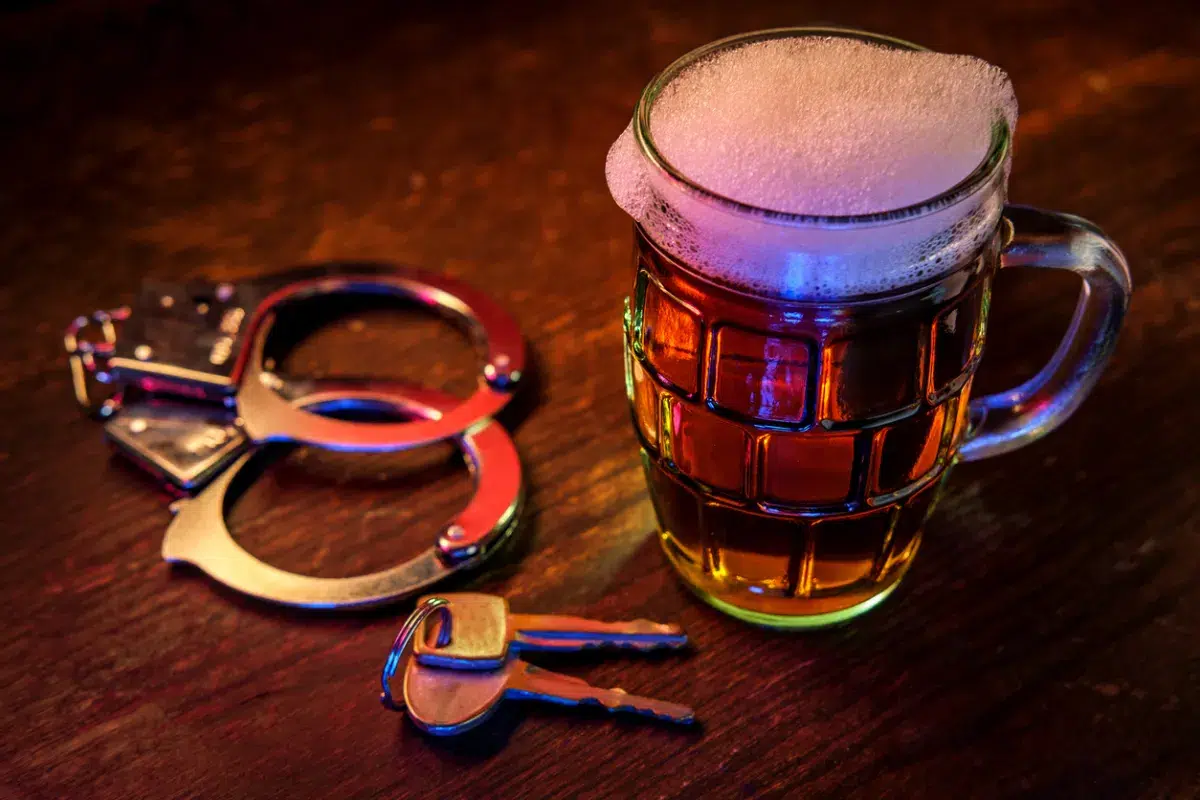
“Drunk driving,” “driving under the influence,” and “operating while intoxicated” are just a few terms you might have heard used to describe the crime of impaired driving. In Indiana, the terms “DUI” and “OWI” are especially common. However, what is the difference between DUI and OWI in Indiana?
Not understanding the legal definition of OWI in Indiana can make it difficult to decide how to handle an OWI criminal charge. You might hesitate to accept a plea or question the benefits of fighting your case because you are wondering, “Is OWI worse than DUI in Indiana?”
Below, you will learn about the difference between a DUI and an OWI, DUI vs. OWI penalties in Indiana, and how an experienced Indianapolis criminal defense attorney can make a difference in your case’s outcome.
Understanding the Terminology
There are no fewer than seven different terms used throughout the United States to describe drug-impaired drunk driving. “Driving under the influence” (DUI) is one of the most widely recognized terms, while “operating while impaired” (OWI) is used in several Midwestern states like Indiana.
Legal Definitions and Scope of Each Charge
What is the difference between a DUI and an OWI? The precise statutory definition of “driving under the influence” can vary slightly from one state to the next. However, in those states that use the term “DUI,” this offense generally requires proof of several elements:
- You were “driving” a motor vehicle on a public roadway
- While driving, your breath or blood alcohol content was over 0.08%
- Alternatively, your driving abilities were negatively impaired by some intoxicating substance
Although some individuals see drunk driving as synonymous with DUI, the term encompasses more than alcohol-impaired driving. Those who are under the influence of illegal drugs and even prescription medications to a degree that their driving is negatively affected can also be guilty of DUI.
What Is an OWI in Indiana?
Indiana is one of a handful of states that criminalize “operating while intoxicated.” Therefore, the answer to the question, “What is the difference between a DUI and an OWI?” is largely that in Indiana, DUI laws simply do not use the term “DUI.”
Under these laws, a person can commit OWI when they “operate” a vehicle, a broader term than simply “driving” a motor vehicle. In addition to operating a vehicle, the prosecution must also prove the person:
- Had a breath or blood alcohol concentration of at least 0.08%, which is the legal alcohol limit; or
- Was “intoxicated” by alcohol, drugs, a combination of the two, or certain other substances
According to Indiana law, you are “intoxicated” when a substance like alcohol or drugs impairs your “condition of thought and action” and you lose “normal control” over your faculties.
Given this definition, OWI laws in Indiana criminalize many of the same behaviors as DUI laws in other jurisdictions. However, because someone can “operate” a vehicle without driving it, Indiana’s DUI laws are broader than some other states’ laws.
Arrest and Prosecution: Differences in Indiana
Whether you or someone else refers to your charge as OWI or DUI, law enforcement officers and the courts will treat it the same. When a police officer suspects you are engaging in drunk driving or other conduct prohibited by the OWI law, your case will progress through the following stages:
1. Detaining You and Your Vehicle
First, the officer will detain you and your vehicle if they have reasonable suspicion that you are “operating” your vehicle while intoxicated. They can also stop your vehicle if they witness you commit any traffic infraction, such as failing to use your turn signal.
2. Developing Probable Cause
Next, the officer will attempt to gather enough evidence to arrest you for OWI. Admitting to having consumed alcohol or drugs, having bloodshot or watery eyes, and smelling like alcohol are common things officers look for to support their decision to make an OWI arrest.
During their investigation, the officer may also give you standardized field sobriety tests like the “walk-and-turn” test or “one-leg-stand” test. Your performance on these tests will also help the officer decide whether to arrest you.
3. Further Testing
Now that the officer believes they have probable cause to believe you committed OWI, they will place you under arrest and ask you to complete further testing. Typically, this testing is a chemical test conducted on an Intoximeter EC/IR or similar breathalyzer testing machine.
If a chemical test or breathalyzer test is not practical, or if you refuse to submit to such testing, officers might have a sample of your blood drawn. They would then send this blood sample off for additional analysis.
4. Vigorous Prosecution
Suppose the officer has completed the above-described steps and believes you operated your vehicle while intoxicated. In this situation, they would give your case to the local prosecutor for legal proceedings. The prosecutor bears the burden of proving beyond a reasonable doubt that you committed the offense of drunk driving or OWI.
As a matter of public policy, many prosecutors’ offices take a strong stance against OWI. They might be unwilling to offer you a favorable plea deal, especially if someone was hurt in a DUI crash or if you endangered minor children in the incident.
Penalties: Similarities and Differences
There is just one set of penalties for DUI and OWI offenses in Indiana since the two terms mean the same thing in this state. In other words, regardless of how you refer to the offense, there is no difference between DUI and OWI when it comes to the penalties for violating drunk driving laws in Indianapolis and elsewhere.
Misdemeanor vs. Felony OWI: Indiana Felony Factors
Most first-time DUI offenses in Indiana are classified as misdemeanor OWI offenses. If you are convicted of your first OWI offense and a chemical test showed your blood alcohol content was above 0.08% but less than 0.15%, you will be convicted of a Class C misdemeanor.
Class C misdemeanors can be punished by up to 60 days of jail time and a fine not greater than $500. In addition, for any OWI conviction, you can face other penalties and consequences like:
- Probation
- Community service
- Court costs and administrative fees
- Alcohol or drug assessment and treatment
Also, courts can suspend your driving privileges for an OWI conviction. The length of time your driver’s license will be suspended increases if you have prior drunk driving convictions or if you refuse to take a chemical test during an OWI investigation.
Second and subsequent drunk driving convictions in Indiana are also classified as Class C misdemeanors if your alcohol concentration was between 0.08% and 0.15%. However, with prior DUI convictions on your record, the court will sentence you to mandatory periods in jail with a minimum of five to ten days.
However, even your first-time OWI offense in Indiana can become a Class A misdemeanor if your alcohol level exceeds 0.15% or if you endanger someone else. The criminal penalties for such an offense include a jail sentence of up to one year and a fine of up to $5,000. You will also face the same additional consequences, like license suspension, community service, and other costs.
To charge a felony OWI, Indiana prosecutors must prove one of the following circumstances:
- You caused serious bodily injury or catastrophic injuries to another person
- You were over 21, and a passenger under 18 was in your vehicle
- You killed someone or a law enforcement animal while OWI
- You have a previous OWI conviction within the previous seven years
OWI offenses are also charged as felonies if you have two or more previous drunk driving convictions within the preceding ten years.
Level 6 Felony OWI: Indiana Penalties
Level 6 felonies are generally punishable by between six months and 30 months of prison and a $10,000 fine. For your charge to be a Level 6 felony offense, you must have a prior OWI conviction from no more than seven years ago, have been over 21 and transporting someone under 18, or have killed a law enforcement animal while OWI.
Level 5 Felony OWI Penalties
Your OWI becomes a Level 5 felony if you cause serious bodily injury to another person, even if this is your first DUI offense. A court can sentence you to between one and six years in prison and fine you up to $10,000 on a Level 5 OWI conviction.
Level 4 Felony OWI Consequences
On Level 4 felonies, the court can sentence you to between two and 12 years in prison. As with Level 6 and 5 felonies, you can be fined up to $10,000 for a Level 4 felony conviction. Level 4 OWI charges are brought when someone has suffered catastrophic injuries or died as a result of the OWI.
Public Perception vs. Legal Reality
Despite the public’s perception that DUI laws are tough, the legal reality shows that unless certain aggravating circumstances are present, the penalties for DUI may not be enough.
While suspending someone’s driving privileges or restricting their driver’s license for a time is inconvenient, and community service and fines are a burden, some individuals are not deterred from committing OWI in the future by these consequences alone.
On the other hand, individual judges do have discretion to sentence individuals charged with OWI based on the specific circumstances. For example, someone who commits OWI with an alcohol concentration of 0.14% might not receive the same sentence as someone whose alcohol concentration was 0.08%.
There can be a significant gulf between what the public believes about DUI/OWI and the complex legal realities courts, attorneys, and individuals facing charges grapple with in court.
Why Accurate Legal Representation Matters
The first step in how to fight an OWI charge in Indiana is to retain the services of an experienced OWI criminal defense lawyer. The need for representation from a legal professional who has handled Indiana OWI cases is because you may have several defenses to your charges, depending on the unique circumstances of your arrest.
For example, you could be found not guilty at trial or even have your case dismissed before trial if:
- There was no evidence that you were driving a vehicle
- The officer did not have a reasonable suspicion to pull you over
- There was no probable cause to arrest you or to support the officer’s demand that you take a breath or chemical test
- The breathalyzer testing machine malfunctioned, or the officer did not follow appropriate protocols when collecting your breath or blood sample
- The drug in your system was marijuana
It is also a defense if you had a prescription drug in your system and were using it as prescribed at the time of your offense.
Other Available Defenses
Even if you do not have a defense to impaired or drunk driving, your attorney may still be able to challenge the severity of your DUI offense and the penalties you receive. For example, a seasoned DUI criminal defense lawyer in Indiana will know when and how to challenge:
- The precise result of your chemical test and the blood alcohol content it showed
- A previous OWI conviction or out-of-state drunk driving convictions
- Whether anyone suffered serious bodily injury or was killed in an OWI crash
Only a criminal defense attorney who has successfully represented drivers charged with OWI under Indiana DUI laws will know how to analyze the prosecution’s evidence, gather additional information, and provide you with all of the options available for responding to your charges.
Contact Your Indiana OWI Defense Lawyer at Gemma & Karimi
Even your first DUI offense in Indiana can lead to consequences like fines, a jail sentence, suspension of your driver’s license, and other related penalties. Before you enter any plea that affects your finances, freedom, driver’s license, and reputation, talk with an Indiana DUI lawyer.
Contact Gemma & Karimi, and we will ensure you have all the facts about your case and your options before deciding on the best criminal defense strategy for your case.



